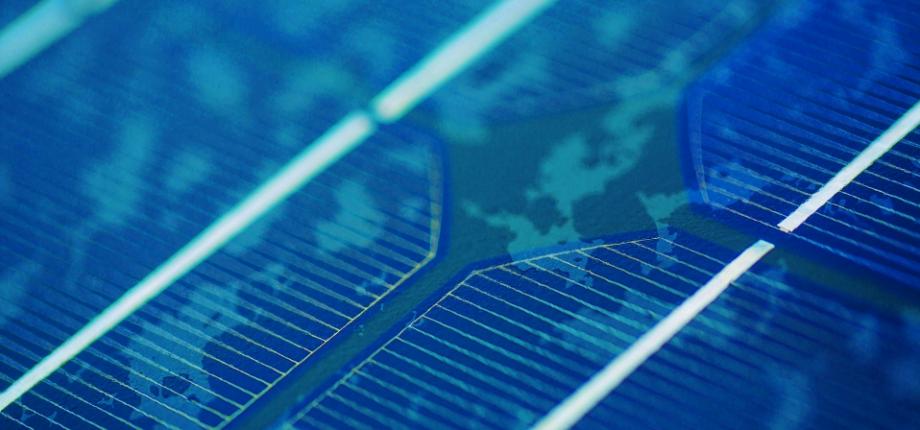Master Year 1 in Energy

| Year | Master Year 1 |
| Program | Sciences and Technologies for Energy |
| ECTS Credits | 60 |
| Language | English (some courses in French) |
| Orientation | Research |
| Location | Palaiseau Campus |
| Course duration |
|
| Course start | September |
| Degree awarded | Master’s degree obtained on completion of the second year of the Master |
WHY ENROLL IN THIS PROGRAM?
Asset n° 1
Prepare for a PhD
Asset n°2
Customize your learning to specialize in a specific energy-related field
Asset n°3
Gain experience through an internship
The first-year Sciences and Technologies for Energy Master’s program encompasses mandatory and elective scientific courses, French language learning, various projects and an internship. This first year allows students to acquire advanced scientific and technological knowledge. The elective courses cover an array of topics including physics, engineering, applied mathematics and network management. Through their choice of specialized courses, students will be able to customize their learning to pursue one of the following second-year majors: Clean Energy Production, Energy Infrastructure Management or Optimizing Energy Utilizations.
Objectives
This first-year program will allow students to:
- Acquire a high-level understanding of the science underlying the energy sector including physics, mechanics, chemistry, thermodynamics, chemical engineering, applied mathematics, and communication sciences
- Grasp the working principles of different techniques for energy production, storage and distribution
- Understand wider environmental and climatic issues, as well as the economic and societal impacts of the energy transition
To complete the Master’s degree, first-year students can enter the following second-year programs:
After completing the second-year of the Master, students will be able to pursue a PhD or occupy a wide range of positions in the energy sector including:
- R&D engineer specializing in wind or solar technologies, developing batteries or fuel cells, treating pollutants and waste in the energy industry
- Smart grid developer
- Wind farm or solar plant project manager
- Consultant in sustainable development
- Power analyst for energy markets
- Public policy advisor
|
Meteorology and environment |
36h 4 ECTS English |
|
Mechanics for wind energy |
36h 4 ECTS English |
|
Physics and engineering of photovoltaic devices |
36h 4 ECTS English |
|
Power Electrical Engineering for renewable energy |
36h 4 ECTS English |
|
Material sciences for energy conversion & storage |
36h 4 ECTS English |
|
Fluid/structures interactions |
36h 4 ECTS English |
|
Thermodynamics and heat transfers |
21h 2 ECTS English |
|
Introduction to process engineering |
21h 2 ECTS English |
Admission requirements
Academic prerequisites
- Bachelor of Science from a top university
- High level of understanding in fundamental disciplines (mathematics, physics, mechanics, chemistry)
Language prerequisites
English (B2)
How to apply
Applications can be submitted exclusively online. You will need to provide the following documents:
- Transcript
- Two academic references (added online directly by your referees)
- CV/resume
- Statement of purpose
You will receive an answer in your candidate space within 2 months of the closing date for the application session.
Fees and scholarships
Registration fees are available here
Find out more about scholarships
Please note that fees and scholarships may change for the following year.
Applications and admission dates
The first-year Sciences and Technologies for Energy Master’s program encompasses mandatory and elective scientific courses, French language learning, various projects and an internship. This first year allows students to acquire advanced scientific and technological knowledge. The elective courses cover an array of topics including physics, engineering, applied mathematics and network management. Through their choice of specialized courses, students will be able to customize their learning to pursue one of the following second-year majors: Clean Energy Production, Energy Infrastructure Management or Optimizing Energy Utilizations.
Objectives
This first-year program will allow students to:
- Acquire a high-level understanding of the science underlying the energy sector including physics, mechanics, chemistry, thermodynamics, chemical engineering, applied mathematics, and communication sciences
- Grasp the working principles of different techniques for energy production, storage and distribution
- Understand wider environmental and climatic issues, as well as the economic and societal impacts of the energy transition
To complete the Master’s degree, first-year students can enter the following second-year programs:
After completing the second-year of the Master, students will be able to pursue a PhD or occupy a wide range of positions in the energy sector including:
- R&D engineer specializing in wind or solar technologies, developing batteries or fuel cells, treating pollutants and waste in the energy industry
- Smart grid developer
- Wind farm or solar plant project manager
- Consultant in sustainable development
- Power analyst for energy markets
- Public policy advisor
|
Meteorology and environment |
36h 4 ECTS English |
|
Mechanics for wind energy |
36h 4 ECTS English |
|
Physics and engineering of photovoltaic devices |
36h 4 ECTS English |
|
Power Electrical Engineering for renewable energy |
36h 4 ECTS English |
|
Material sciences for energy conversion & storage |
36h 4 ECTS English |
|
Fluid/structures interactions |
36h 4 ECTS English |
|
Thermodynamics and heat transfers |
21h 2 ECTS English |
|
Introduction to process engineering |
21h 2 ECTS English |
Admission requirements
Academic prerequisites
- Bachelor of Science from a top university
- High level of understanding in fundamental disciplines (mathematics, physics, mechanics, chemistry)
Language prerequisites
English (B2)
How to apply
Applications can be submitted exclusively online. You will need to provide the following documents:
- Transcript
- Two academic references (added online directly by your referees)
- CV/resume
- Statement of purpose
You will receive an answer in your candidate space within 2 months of the closing date for the application session.
Fees and scholarships
Registration fees are available here
Find out more about scholarships
Please note that fees and scholarships may change for the following year.













